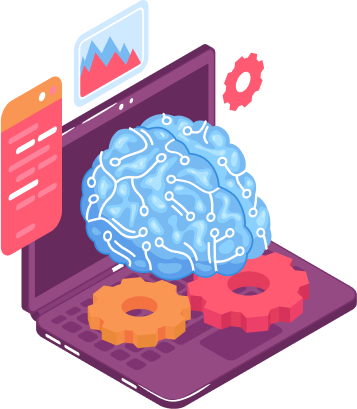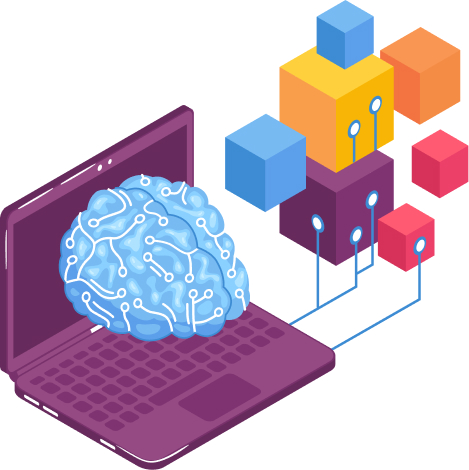As we navigate through 2024, the landscape of education continues to evolve with eLearning taking center stage. The shift towards online education, accelerated by the global events of the past few years, has reshaped how we perceive teaching and learning. This blog post delves into the current state of eLearning, highlighting its benefits and challenges, and explores the effectiveness and future of online education.
2023 eLearning report
The 2023 eLearning report revealed significant growth in the adoption of online education platforms, with a notable increase in both academic institutions and businesses embracing eLearning solutions. The report highlighted the flexibility, accessibility, and a wide range of courses as key factors driving this growth. However, it also pointed out challenges such as digital divide, engagement, and the need for self-discipline among learners.

5 Benefits of eLearning
1. Flexibility
Flexibility stands out as a major advantage of online education, significantly enhanced by the integration of AR and VR in education. These technologies offer immersive learning experiences, enabling students to explore complex subjects in a more interactive and engaging way. Moreover, the use of AI in eLearning personalizes the educational journey, adapting content to meet individual learning styles and pace, thus making the learning process more efficient. Additionally, gamification in education introduces elements of play into learning, motivating students through rewards, challenges, and interactive scenarios. This combination of technologies allows learners to engage with materials and complete their coursework according to their own schedules, making education accessible across different time zones and amidst various personal commitments, thereby revolutionizing the traditional learning environment.
2. Accessibility
Online education breaks down geographical barriers, enabling students in remote or underserved regions to access quality education and resources that would be out of reach otherwise. This inclusivity enhances learning opportunities for a broader audience.
3. Customized learning experience
eLearning platforms frequently provide personalized learning journeys, tailoring content to the learner’s pace and learning style. This adaptability can significantly enhance the effectiveness of the learning experience, catering to individual needs and preferences.
4. Cost-effectiveness
Online courses typically cost less than their traditional counterparts, easing financial barriers for numerous learners. This affordability extends to savings on commuting, accommodation, and course materials, making education more accessible.
5. Diverse course offerings
The breadth of subjects and specializations available online allows learners to explore new disciplines or deepen their expertise in specific areas. This diversity caters to a wide range of interests and career goals, enriching the educational landscape.
5 Challenges of eLearning
1. Technology access and digital divide
The digital divide poses a significant challenge, as disparities in access to technology and reliable internet connectivity hinder the learning experience for individuals in various regions, affecting the equitable distribution of educational opportunities.
2. Learner engagement
Keeping learners motivated and engaged in a virtual environment can be difficult without the physical presence of instructors and classmates. Creating an interactive and engaging online learning experience requires innovative approaches and tools.
3. Self-discipline and time management
Success in online learning demands a high level of self-discipline and effective time management skills. Without the structured environment of traditional classrooms, some learners may struggle to keep pace with their studies.
4. Quality and accreditation concerns
The quality and recognition of online courses and degrees continue to be areas of concern. Issues related to accreditation and the acceptance of online qualifications by employers can impact the perceived value of eLearning credentials.
5. Limited hands-on experience
For certain subjects that require practical, hands-on experience, replicating these conditions in an online format can be challenging. This limitation can affect the comprehensiveness of the learning experience in fields such as science, engineering, and healthcare.
How effective is online learning?
Studies and feedback from both educators and learners indicate that online learning, especially through a microlearning platform, can be highly effective, particularly when courses are designed with engagement and interactivity in mind. The effectiveness of such platforms often depends on the learner’s motivation, the quality of the course content, and the support provided by the institution. Microlearning platforms, by breaking down information into small, manageable chunks, cater to a wide range of learning styles and can significantly enhance the learning experience.

Real-world successful eLearning examples
The landscape of online education is dotted with success stories that highlight the potential and effectiveness of eLearning. Here are some standout examples:
Coursera and edX: pioneers in university partnerships
Coursera and edX have emerged as leading platforms in the eLearning sphere by partnering with prestigious universities across the globe. They offer a diverse array of courses covering subjects from computer science to philosophy. These partnerships have not only expanded the reach of quality education but have also underscored the growing demand and acceptance of online learning. Through these platforms, learners can access specialized courses and even earn certificates and degrees, showcasing the tangible value and success of online education models.
Duolingo: making language learning accessible
Duolingo has transformed the way people learn languages. With its user-friendly interface and gamified learning experience, it has attracted millions of users worldwide. Duolingo proves that eLearning can be both engaging and effective, breaking down barriers to language education. Its success lies in its accessibility, allowing learners of all ages to start a new language journey from anywhere, at any time, for free or at a very low cost.
Khan Academy: democratizing education
Khan Academy has been a trailblazer in providing free, high-quality educational resources to learners from school to college levels. Covering subjects from mathematics to humanities, it supports a wide range of learners, including students, teachers, and self-learners. Khan Academy’s model is a testament to the power of eLearning in democratizing education, ensuring that anyone, regardless of their financial situation, has access to top-notch educational content.
These examples illustrate the diverse applications and success stories of eLearning, from formal university courses to informal language learning and free educational resources. They highlight the scalability, adaptability, and transformative potential of online education in meeting the learning needs of a global audience.
The future of eLearning
The future of eLearning looks promising, with advancements in technology such as AI and VR expected to further enhance the online learning experience. Personalized learning experiences, gamification, and increased interactivity are likely to become more prevalent, making eLearning an integral part of the educational landscape.

Conclusion
The benefits of online education, such as flexibility, accessibility, and a wide range of course offerings, make it an attractive option for many learners. However, challenges like the digital divide and maintaining learner engagement need to be addressed to fully realize its potential. As we look to the future, the continued evolution and integration of technology in eLearning will play a crucial role in shaping an inclusive and effective educational environment for all.
